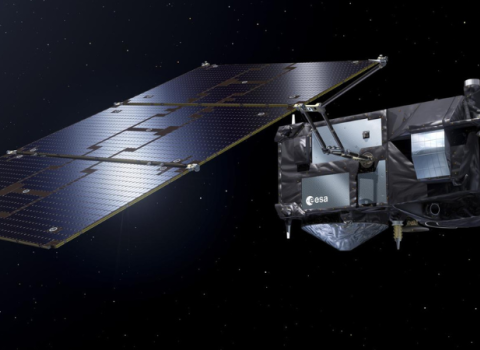EADS Innovation Works, the corporate research arm of Europe’s leading aerospace company is working with researchers at Glasgow University a develop new solid statestorage system for hydrogen that will make it possible to use hydrogen as a clean alternative to traditional hydrocarbon-based fuels in aeroplane and car engines.
Although hydrogen has much promise as a clean fuel, it is expensive and difficult to store safely. To store hydrogen as a gas requires high volumes, while to store as a liquid increases weight and there is an energy requirement to compress it. Storage of hydrogen in a solid is very attractive, but minimising its weight and volume and controlling the rate of transfer from a storage tank to a fuel cell or engine is difficult.
In the collaboration, chemists at Glasgow are applying nanotechnology to alter the design and material composition of an existing type of hydrogen storage tank with the aim of making it suitable for an industrial scale for aeroplanes and cars. If the modifications to the tank structure are successful, EADS is planning to fly an un-manned hydrogen-powered test plane in 2014, with a longer term aim of introducing commercial aeroplanes powered by hydrogen.
“Replacing traditional hydrocarbon-based fuels with pollution-free hydrogen inaeroplane and car engines would deliver huge benefits to the environment,” said AgataGodula-Jopek, Fuel Cells Expert in the EADS Power Generation Team, which iscoordinating the programme for the company.
The Glasgow researchers, led by Duncan Gregory, Professor of Inorganic Materials at the School of Chemistry, and EADS Innovation Works have secured funding from the Materials Knowledge Transfer Network - part of the UK Technology Strategy Board – and the UK Engineering and Physical Sciences Research Council. This will fund a student to carry out a four year PhD project, spending time at the university and the company’s German offices in Ottobrunn.
Gregory said, “Using new active nanomaterials in combination with novel storage tank design principles presents a hugely exciting opportunity to address the considerable challenges of introducing hydrogen as a fuel for aviation.”
EADS Innovation Works and Gregory’s team are now seeking funding from the European Union to build a European-wide team of academic and industrial partners to examine the wider issues relating to using hydrogen on an industrial scale to power aeroplane and car engines.





 A unique international forum for public research organisations and companies to connect their external engagement with strategic interests around their R&D system.
A unique international forum for public research organisations and companies to connect their external engagement with strategic interests around their R&D system.